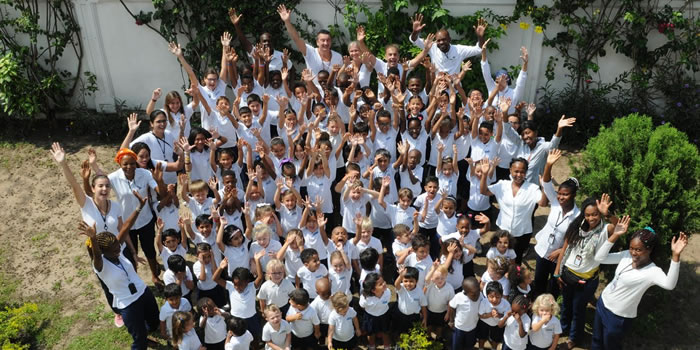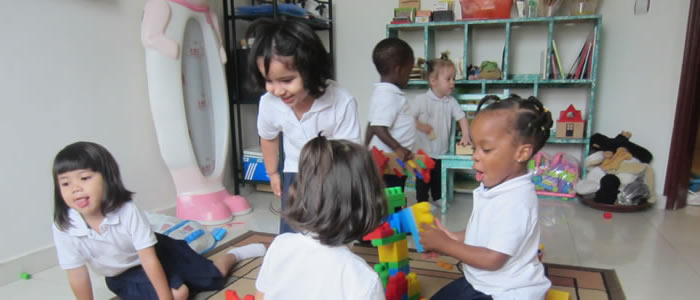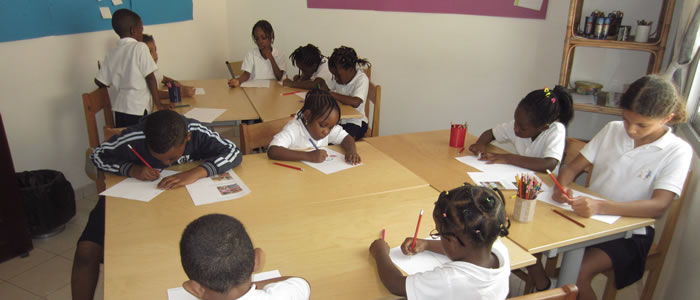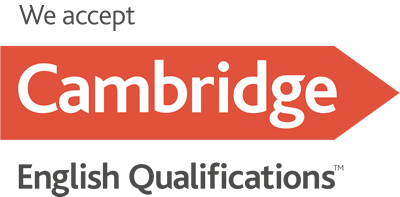Statement of Intent
The objectives of the Academy International British Primary School (AIBPS) Health and Safety policy is to make the safe and secure place for the children, students, parents, carers, staff and visitors who may enter the premises. We aim to make all the children, students, parents, carers and staff aware of health and safety issues to minimise the hazards and risks to enable them to thrive in a safe and healthy environment.
Organisation and Responsibilities
The General Manager is responsible for the overall management of Health and Safety in the AIBPS.
Staff
All staff are responsible for ensuring that they work in a manner which is safe to themselves and to others and to comply with the requirements of this policy. All staff, parents, carers, volunteers and students are urged to read this Health and Safety Policy.
Responsible for:
ü Reading through the AIBPS Health and Safety Policy.
ü Complying with all arrangements for Health and Safety at the Academy.
ü Undertaking required training and refresher courses.
ü Complying with the findings of Risk Assessments and carrying out the stated controls as required.
ü Acting on any urgent issue or hazard immediately as necessary and reporting it to the General Manager or to the next available senior person (“Executive Staff”).
ü Reporting non –urgent defects and hazards by writing them down in the Health and Safety reporting book (and letting Executive Staff know of any entries) and or adding an item on the agenda for discussion at weekly staff meetings.
ü Carrying out quaterly inspections of all areas of the Academy inside and out, equipment and resources.
Estate and Facilities Management
Responsible for:
ü Ensuring the condition of the building both inside and out
ü Carrying out stationery tests on the electric, gas and water supplies and heating system
ü Testing the fire alarm and emergency lighting
ü Testing the controlled temperature of the hot water in the taps used by the children
ü Maintaining the garden and grounds
Health and Safety Department
Responsible for:
ü Giving advice, guidance and assistance.
ü Undertake yearly audits.
ü Providing Health and Safety training.
ü Providing First – Aid supplies
ü Investigating serious accidents
Fire Precautions
A comprehensive fire emergency plan and evacuation procedure is given to all members of staff and parent and carers and a copy is available in the reception area.
All staff, students, visitors, volunteers, Parent or Carers are aware of the location of fire doors and fire exits, and means of escapes from the Premises. Also to know the location of the nearest fire extinguisher and fire alarm call points and instructions for their use. All staff has attended the Universities in house Safety Officer Training. Emergency exit routes are always tidy and free from obstacles. The Fire Siren is tested on a regular basis.
Fire Evacuation Procedure
All staff is to attend the Fire drills. In the event of a fire alarm sounding, whether real or a test, the following is to be carried out:
- the Safety Officer is to collect the register from Reception;
- The Safety Officer and/or most senior teacher are to take responsibility for the children and staff and to assist them to immediately, but calmly, vacate the Premises, through the safest exit and to stand outside in one of the two nominated muster areas of the Premises;
- the Safety Officer must check no occupants remain in the Premises;
- an attending teacher must check the student rolls to confirm everyone has vacated the Premises and then report this to the AIBPS Safety Officer;
- in the event access to one muster area is denied, then the staff and students are to assemble at the other nominated muster area;
- in the event of a real incident the Parent or Carers will be contacted to enable them to collect their children;
- in the event of a drill then student and staff are to return to their respective areas, following approval only by the Safety Officer.
Fire Prevention
At the end of an Academy day all staff would switch of all electrical appliances, close all doors and windows in each room. The Academy is a non-smoking environment.
First Aid
There will always be 2 members of staff who are qualified in applying First Aid, a qualification which is updated every three years. There are 3 First Aid boxes are located in 4 distinct locations with the Premises.
First aid kits are regularly checked and restocked and are kept out of reach of children.
Should an accident occur which AIBPS staff feel needs professional medical attention and is an emergency we would inform the child’s parent or carer explain the exact nature of the emergency and request clear instructions from the parent or carer. These instructions must be written down in the register.
A child will never be taken to hospital without consent or in a private vehicle.
Where a child has suffered an injury affecting their ability to learn, or has a virus, then AIBPS staff will call the parent in order for the child to return home.
Risk Assessment
The majority of the activities that are carried out in the Academy are generally of low risk in nature and do not require being formally assessed.
However if We are planning a trip outside the Academy or are carrying out an activity when the child could be at risk, a written risk assessment would be carried out.
Risk assessments are carried out by the General Manager and all staff will contribute to the assessment. The risk assessments would be carried out on activities in or outside the
Premises and school outings.
Risk assessments are brought to the attention of all relevant staff and students, parent and carers and anyone who is involved in the activity.
Risk assessments are periodically passed to members of the Executive staff for checking to ensure that they are suitable and sufficient.
Monitoring of the Health and Safety Policy
The AIBPS Health and Safety Policy will be reviewed to monitor the effectiveness of the health and safety in the setting. The inspection will be carried out by members of the Executive staff.
Health and Safety Queries and Issues
All staff, students, visitors, parent or carers would report any health and safety issues promptly to the Safety Officer or a senior member of staff in their absence. Health and
Safety issues would be discussed and recorded and the relevant authorities would be informed of the concern that has occurred.
Health and Safety Policy and Procedure Compliance
All members of staff are required to read and attest annually they understand and will comply with Health and Safety Policy and procedures.
Emergency Procedure
In case of a medical emergency the following procedures will be implemented:
- If an ambulance needs to be called for any reason staff will ring Clinic Guenin or Netcare who will arrange for an ambulance. Staff will not use personal transport.
- If the Parent or Carer is unable to go with their child a staff member will accompany them.
- The staff member will take the relative information with them (child’s record card, accident form and any necessary medication).
- If a child or member of staff etc. has a minor injury a taxi can be used
- All relevant information will also be taken.
- In all cases the parent or carer is to be informed.
Disaster Plan
The AIBPS has drawn up a disaster plan. If the Academy was affected by any disaster you would be contacted by phone or text. All phone numbers are held at the Academy.
We will ensure up to date phone numbers of parents or carers are kept.ss
Insurance Cover
We have a public liability insurance and employers insurance. The certificate is displayed in the hall.
Child Safety Precautions
Only adults who have enhanced disclosure forms from the Criminal Records Bureau have unsupervised access to the children. We aim for adults not to supervise children alone.
During Academy opening times there are always at least two adults in the building.
Parent or Carer s will be asked to provide the Academy with their contact telephone numbers, the names and telephones numbers of those who should be contacted in the case of an emergency, and a list of any allergies, dietary requirements and any illnesses in the child’s history which may affect the safety of that child whilst at Academy.
Academy equipment is checked daily any damaged or dangerous items are removed; they may be replaced or repaired.
All creative materials that are used are non-toxic.
Sand is clean and suitable for children’s play.
All dangerous materials, including medication, are stored out of children’s reach.
Children who are sleeping are supervised.
The garden is only used under adult supervision.
Heaters, electrical sockets, wires and leads are properly guarded and the children are taught not to touch them.
All electrical and gas equipment within the building conforms to safety requirements and is checked regularly.
The Academy has a non-smoking policy.
Lighting and ventilation is adequate in all areas including storage areas.
We encourage all parties to advise AIBPS staff of any safety concerns they may have or initiative they feel AIBPS can deploy to enhance safety.
Hygiene
To prevent the spread of infection we will encourage the following practices:
ü We regularly seek information from the local authorities to ensure that we keep up-to-date with the latest recommendations
ü Paper towels are used as a source for drying hands and drying crockery. When possible crockery will be left to air dry
ü Staff will wear protective aprons when preparing food
ü Surfaces and fridges are cleaned with an antibacterial spray
ü The Academy cleaner has a rota for cleaning the Academy appliances fixtures and fittings
Infection Control
We regularly seek information from the local authorities to ensure that we keep up-to-date with the latest recommendations with regard to infectious diseases e.g. vomiting and diarrhoea, chicken pox and conjunctivitis etc. In addition, we will take temperature readings of students entering the Academy where we feel the child may be ill.
The toilet areas have a high standard of hygiene including hand and washing and drying facilities. Staff and children wash hands after using the toilet.
Children are encouraged to cover their mouths when coughing and sneezing.
A large box of tissues is available in each room and the children are encouraged to blow and wipe their noses as appropriate and disregard the tissues into a bin. All soiled tissues are disposed of properly.
Paper towels are used and disposed appropriately.
All staff to clean and prepare tables to be used for eating, with antibacterial spray.
Hygiene rules relating to bodily fluids are observed by all staff and volunteers, with particular reference to the use of gloves to prevent the risk of cross- contamination and we have a bio-hazard kit.
The Academy is cleaned daily by professional cleaners who are employed by the
Academy and whose standard is maintained daily by the Academy staff.
Accident Reporting
All accidents/incidents/near misses except those of a minor nature will be investigated by the appropriate department and recorded on the relevant documentation.
Minor incidents will be recorded on the relevant documentation and assessed in-house once a term. Should an accident occur during the day involving a child, a form will be completed and put by the daily register for the parent or carer to read, sign when the child is collected at the end of the day. We would contact a parent/carer that we feel may need to know that an accident has occurred and we would monitor the child. We also ask all parent or carers to complete an accident form to record incidents that take place at home and leave a mark on the child.
Should an accident occur affecting a child which we feel needs professional medical attention then we will call parent or carers to report the accident and advise them to collect their child and seek advice from their doctor or local hospital. If we feel it is an emergency we will call Netcare for an ambulance, call parent/carers to inform them of the situation and call 06 444 1923 which is the
General Manager's telephone. A child will never be taken to hospital without consent from parent/carers or in a private vehicle.
Accidents/incidents of a serious nature will be reported immediately by the Teacher or attending staff member by telephone to Executive Staff and will be subject to a more formal investigation by the Executive Staff.
Safety of Staff
All staff/volunteers are provided with guidance about storage, movement, lifting and erection of large equipment.
When staff need to reach up for equipment /items they are provided with safe equipment to do so.
Child Security Precautions
Low level windows are made from materials which prevent accidental breakage or are made safe.
All staff will take precautions to prevent children’s fingers from being trapped in
doors and also make children aware.
A member of staff will accompany any visitor or contractor that has to work in any area where the child is playing.
Children do not have unsupervised access to the kitchen and are encouraged not to
enter the kitchen area. Cooking activities are supervised at all times and children do
not have access to hot surfaces or hot water.
We will not allow people unknown to us have access to the building.
The codes for doors will only be given to parents, carers and members of staff.
Parent or Carers will be asked to provide the Academy with the names and telephone numbers of those people who should be contacted in case of emergency, as well as the people who are authorised to collect the child.
Parent or Carers have to sign their children in and out.
Parent or Carers must complete the student registration form which will provide the Academy with the names and telephones numbers of those people who should be contacted in the case of an emergency, as well as the names of people who are authorised to collect the child and a password to be used on these occasions.
Food and Drink Policy
The Academy is aware of its responsibilities under local food hygiene and legislation and are subject to unannounced inspections from the Local Authority Environmental Health Department. The Academy takes all reasonable steps to ensure the safety and wellbeing of children and staff members. It complies with all relevant food hygiene legislation and maintains a proactive approach to the management of food safety.
The Academy has a Food Safety Policy which sets out practice and procedures to be adopted and a copy of the policy is in the reception area for all to access.
Any food provided by the Academy will be nutritious and on a regular basis will be nutritious and please ensure that we know about your child/children’s dietary requirements and any food allergies so that we can meet their needs.
Nuts:
We would ask parent or carers to note that the Academy is a nut-sensitive environment. This is due to the allergies that affect some of the children and staff. Please note that anything containing nuts will be sent home (including peanut butter and other nut spreads) to reduce the risk of accidental cross contamination. Any food that does not contain nuts as a ingredient but bearing the label ‘may contain traces of nuts’ is allowed as so many products now carry this advice. Please consider this especially when bringing food in for the children on special occasions.
Lunchtime Food:
If required, Parents or carer is required to provide a balanced, nutritious and appetising packed lunch. We ask you to please not include sweets, nuts, food with chocolate in them or foods that look like chocolate and no fizzy drinks. For safety reasons we ask that your child’s lunch is in a plastic labelled container. Please include names on small containers in a lunch box or a bag. All lunch boxes and bags go into the fridge in the kitchen please add an ice pack to your child’s lunch to ensure that it is kept to the required temperature during the morning and on the way to Academy. Any leftover food is left in the bag so parent/carers can see how much their child has eaten. We are unable to reheat any food from home.
All children are encouraged to eat by the staff who sit with them during the cafe style lunch time which is held in the kitchen.
Drinking Water:
Over the last few years the health benefits to all of regularly drinking water has been
highlighted and it’s especially beneficial to children and aids their learning with water having been coined ‘brain juice’. To help us in monitoring how much water each child is drinking throughout the day, we ask you provide the children with their individual named plastic bottle of water with a drinking spout so that the children can drink straight from the bottle. These bottles are put on a tray and placed on a table in the main room so the children can access them. The bottles are washed daily and re-filled with fresh water ready for when your child attends the Academy. During the summer month’s staff encourages the children to drink more.
Snack times
Should the need arise the Academy provides healthy snack time. Being mindful about the amount of salt in foods etc. we offer a piece of fruit or vegetable in the morning along with semi-skimmed cow’s milk , full fat cow’s milk for children at least up to two years old, semi-skimmed milk for two to five year olds and skimmed milk for all over five or water. We have a mini snack at 2pm which is mini breadsticks, mini rice cakes or a small bowl of popcorn.
We share news, look at the diary wall, celebrate birthdays, special days and to look at the visual timetable.
Insurance Cover
We have public liability insurance and employers insurance. The certificate is displayed in the hall.
Day to Day
Only adults who have enhanced disclosure forms from the criminal Records Bureau have unsupervised access to the children. We aim for adults not to supervise children alone.
During Academy opening times there are always at least two adults in the building.
Parents or carers will be asked to provide the Academy with their contact telephone
numbers, names and telephone numbers of those who should be contacted in the case
of an emergency, and a list of any allergies, dietary requirements and any illnesses in
the child’s history which may affect the safety of that child whilst at the Academy.
Academy equipment is checked daily any damaged or dangerous items are removed;
they may be replaced or repaired.
All creative materials that are used are non-toxic.
Sand is clean and suitable and suitable for children’s play.
All dangerous materials including medication are stored out of children’s reach.
Children who are sleeping are supervised.
The garden is only used under adult supervision.
Heaters, electrical sockets, wires and leads are properly guarded and the children are taught not to touch them.
All electrical and gas equipment within the building conforms to safety requirements and is checked regularly.
The Academy has a non-smoking policy and is a mobile free zone in the lab, teaching rooms and cone room.
Lighting and ventilation is adequate in all areas including storage areas.
Latex and Allergies
The Academy provides latex gloves for staff to wear for general cleaning and dealing with bodily fluid and when using anti-bacterial cleaning solutions as needed.
Safety of Play equipment
Safety of play equipment is initially checked by the Teachers and checked daily before use by the members of staff responsible for setting out. All equipment and resources are checked are periodically self-inspected for defects and faults.
Sun Safety
The AIBPS believes in promoting, sun safety practice and procedures to ensure that children and staff are protected from sunburn and skin damage caused by harmful ultra violet radiation from the sun. Skin cancer is a common cause cancer and it is particularly important to protect all our attendees from the sun as their skin is more delicate and easily damaged. The Academy believes that by encouraging sun safe behaviour at the Academy and by teaching attendees about the risks of sunlight, we can prevent them burning and contribute towards preventing skin cancer.
Clinical Waste
Clinical and Hygiene Waste is collected from the Academy weekly by a company who
dispose of the waste.
Materials used for dealing with bodily fluids e.g. blood, are put into a plastic bag and then placed into the large bin which is situated in the staff toilet. Inside the bin there is a yellow sack and the small bags are put inside and once the sack is full it is sealed and a new yellow sack is made available.
Expectant and Nursing Mothers
Risk Assessments will be made to assess the needs of expectant and nursing mothers of staff in carrying out work at the Academy and controls will be put in place as needed e.g. not lifting children.
All staff and parent or carers will be informed of infections and diseases affecting the children and staff at the Academy that warrant the need for expectant mothers to seek advice from G.P.’s and or midwifes.
Garden Maintenance arrangements
The estates department schedule (and oversee) garden maintenance contractors to carry out the following: during the growing season the grass at the Academy should be cut on a two week cycle, shrubs pruned and weeds controlled, this is carried out as and when time allows depending on weather conditions, e.g. if it is dry and little grass is growing it allows more spare time to do work other than grass cutting. In the winter tidying up and shrub pruning is carried out as required depending on weather conditions.
Portable appliance testing
An external contractor is used to undertake portable appliance testing. Equipment that has been tested is labelled to show the next inspection date.
A register of items requiring testing is maintained and new items of equipment are added to the register as the Executive Staff undertake.
Control of Substances Hazardous to Health (COSHH)
All substances used by the Academy staff to maintain a clean and safe environment during an Academy day are household cleaners. The safety Data Information sheets for these products are made available to all e.g. are displayed in the bathroom and kitchen areas, and all staff is required to follow the instructions for use found on the containers. All changes in suppliers and products will be reviewed by the Director of Education.
Industrial strength cleaning products used by the professional cleaning staff, when the
Academy is closed, are used and stored kept in a locked cupboard.
Definitions used in this paper
Academy is a collective term for both the AIBPS and the Academy foreign language section
Premises comprises of all locations owned or leased by the AIBPS and where students are taught by AIBPS teachers.
Safety Officer is a member of the AIBPS staff nominated to apply and administer the Health and Safety policies and procedures which includes being the Safety Officer encompassing duties, such as Fire evacuation procedures and drills. The Safety Officer reports functionally to the General Manager.
Staff comprise of teachers, AIBPS management, third-party workers and sub-contractors.
We means the staff of AIBPS.












